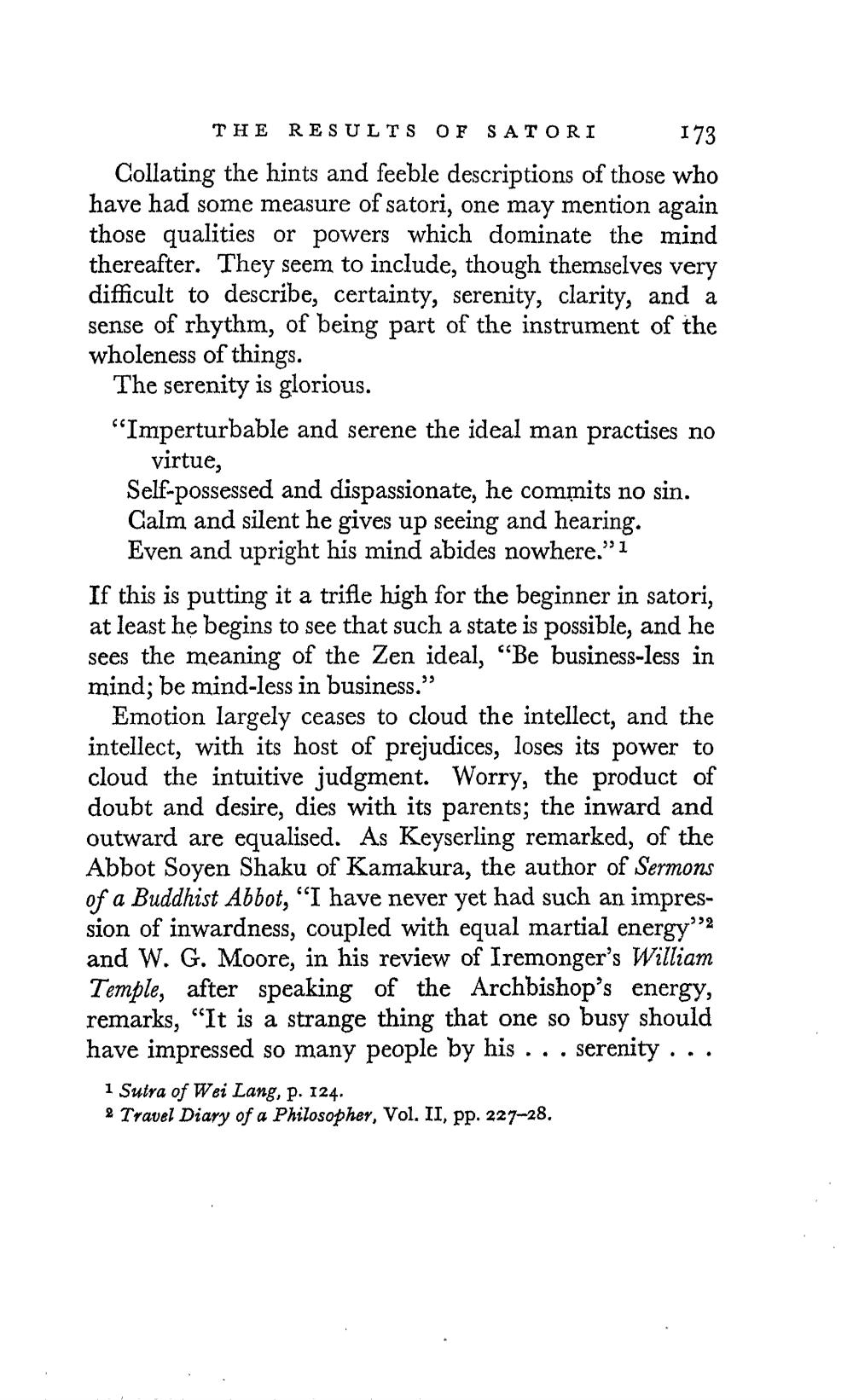________________
THE RESULTS OF SATORI 173 Collating the hints and feeble descriptions of those who have had some measure of satori, one may mention again those qualities or powers which dominate the mind thereafter. They seem to include, though themselves very difficult to describe, certainty, serenity, clarity, and a sense of rhythm, of being part of the instrument of the wholeness of things.
The serenity is glorious. “Imperturbable and serene the ideal man practises no
virtue, Self-possessed and dispassionate, he commits no sin. Calm and silent he gives up seeing and hearing.
Even and upright his mind abides nowhere.” 1 If this is putting it a trifle high for the beginner in satori, at least he begins to see that such a state is possible, and he sees the meaning of the Zen ideal, “Be business-less in mind; be mind-less in business.”
Emotion largely ceases to cloud the intellect, and the intellect, with its host of prejudices, loses its power to cloud the intuitive judgment. Worry, the product of doubt and desire, dies with its parents; the inward and outward are equalised. As Keyserling remarked, of the Abbot Soyen Shaku of Kamakura, the author of Sermons of a Buddhist Abbot, "'I have never yet had such an impression of inwardness, coupled with equal martial energyo and W. G. Moore, in his review of Iremonger's William Temple, after speaking of the Archbishop's energy, remarks, “It is a strange thing that one so busy should have impressed so many people by his . . . serenity ...
1 Sutra of Wei Lang, p. 124. 2 Travel Diary of a Philosopher, Vol. II, pp. 227-28.




